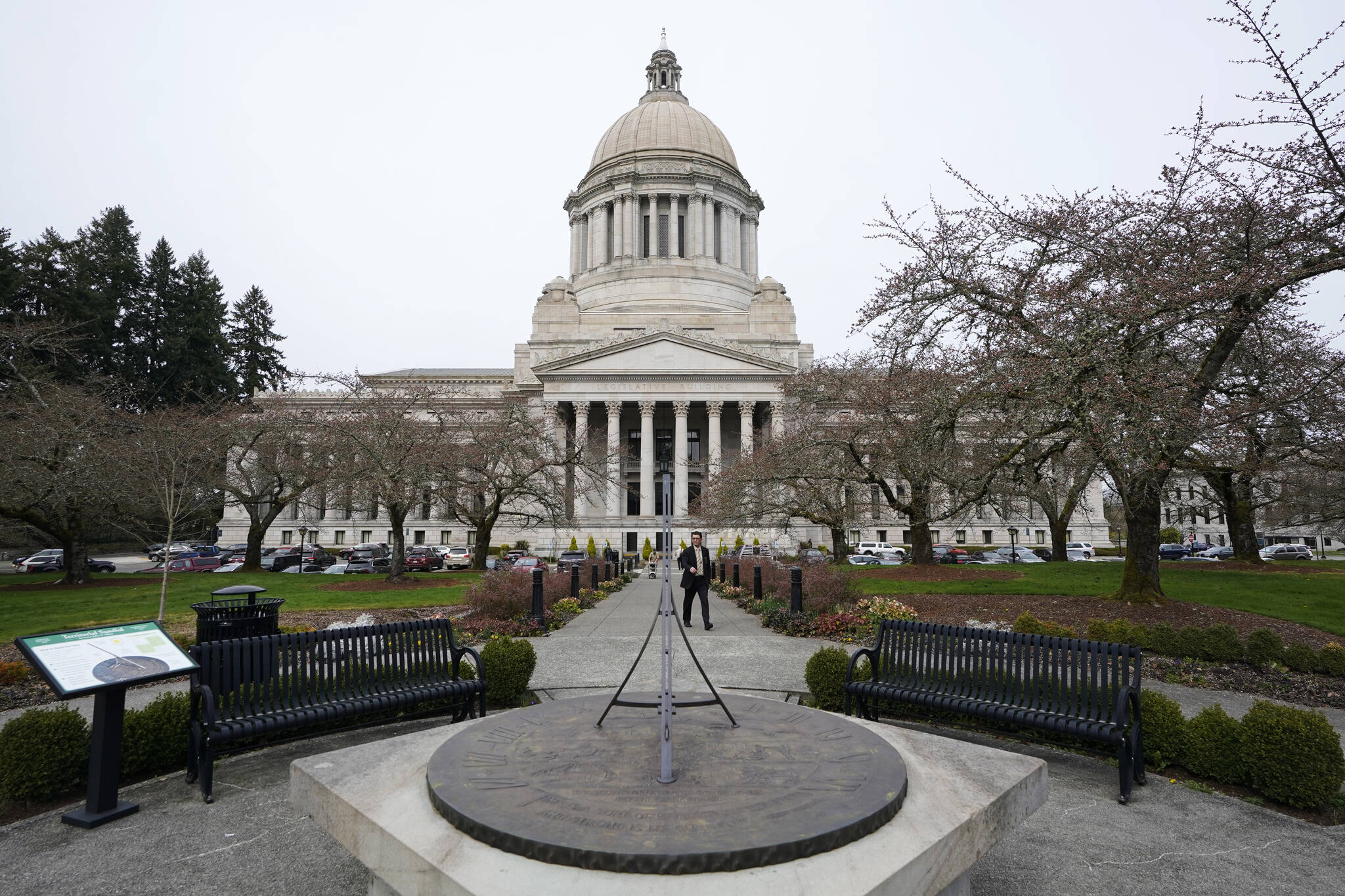By The Herald Editorial Board
For most of us, a notice of a pay raise coming later this year would be good news; recognition of the increasing costs of living and work well done.
But then, most of us aren’t Washington state lawmakers or state elected officials who are scheduled to receive — if not a healthy bump in pay — then a decent cost-of-living increase in their salaries, while at the same time having to adopt a state budget — perhaps as much as $15 billion in the hole over the next four years — that is expected to require significant cuts to programs and even unpaid furloughs, if not layoffs, for many state employees.
Awkward, as the kids say.
If you’re reaching for pitchforks and torches before heading for the state Capitol, this is not the doing of lawmakers, the governor or other elected folk; since 1986, decisions on compensation for those elected to the legislative, executive and judicial branches of state government have been determined by the Washington Citizens’ Commission on Salaries for Elected Officials, a panel of 17 unelected volunteers.
This year, the panel has approved a new salary schedule that, starting July 1, sets pay for the next two years, adding a base cost-of-living increase of 3 percent in the first year and 2 percent in the second year, but also additional increases for the governor, attorney general and state lawmakers, amounting to a 16 percent increase for legislators and 14 percent boost for the governor and AG over the coming two years.
The resulting increases mean that your senator and representatives will see their salaries increase from their current pay of $61,977, to $67,688 this July 1 and $72,494 as of July 1, 2026. Gov. Bob Ferguson — who has proposed some $4 billion in cuts in the next two-year budget on top of $3 billion in reductions identified by former Gov. Jay Inslee before he left office — will see his compensation increase from the current $204,205 to $218,744 this July and $234,275 the following July.
The state’s highest paid official — the state Supreme Court chief justice, a position that is rotated every four years among the seven justices — will see a salary increase from $255,495, to $265,792, then $273,819.
There are convincing cases to be made for the salaries that the commission sets. In general, fair salaries for elected positions are believed to attract better candidates and retain good officials who can usually earn higher wages in the private sector.
That was the point made last year by Lt. Gov. Denny Heck to the commission as it was discussing salaries.
“The members of the Legislature are the board of directors of our 8 million-person state and the entire state workforce,” Heck told the commission in October. “Simply put, state legislator pay is not commensurate with the magnitude of their responsibilities and the time demands.”
It’s also seen as effective in reducing corruption, inspiring better public service and encouraging wider economic diversity among elected officials.
Nationwide, with an average lawmaker salary of $43,500, less than 2 percent of state legislators come from working-class backgrounds, with professional-class and retired lawmakers better able to devote their time to the office.
Researchers from Duke and Loyola-Chicago found last year that of 7,300 lawmakers in 2021-22, just 116 had currently or last worked in manual labor, service industry, clerical or labor union jobs, potentially limiting the socio-economic perspective for those bodies.
But the above points were more palatable to make before the extent of the budget gap the Legislature faces this year was clear.
Even if those elected officials wanted to hold off on the salary increases, that’s not an option available to them. Under state law, neither the governor, the Legislature nor the commission itself, can make any changes or overturn the salary schedule once it’s been submitted to the secretary of state’s office.
“Only the voters can overturn a salary schedule through the referendum process,” advises the commission. And state residents now have a 90-day window to qualify a referendum for the ballot.
To qualify for the November ballot, a referendum campaign would have until May 13 to submit about 155,000 valid signatures from registered voters, the Washington State Standard reported Monday. If such a measure is approved for the ballot, the salary schedule would be put on hold until after the election; otherwise the increases take effect July 1.
Such challenges were attempted in 1987, just after the commission adopted its first such increase; then again in 1991 and in 2019. None of the three was successful in getting to the ballot.
Accounting only for the salaries of lawmakers, the savings in holding off on pay raises wouldn’t amount to a huge windfall. With 147 state lawmakers, holding salaries at current levels would deliver less than $1 million in savings to the state budget in the first year and $1.5 million in the second.
Still, with lawmakers potentially having to tell state employees to accept an unpaid furlough day once a month and leave about 1,000 full-time positions vacant, among other potential cuts to programs and funding, a message of shared pain could be well-received.
A referendum campaign to suspend the salary schedule for the coming two years could be seen as a loss in compensation but a huge political favor for lawmakers.
Talk to us
> Give us your news tips.
> Send us a letter to the editor.
> More Herald contact information.

























